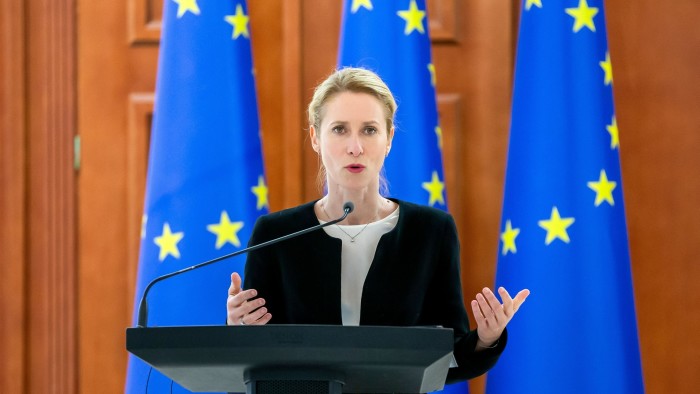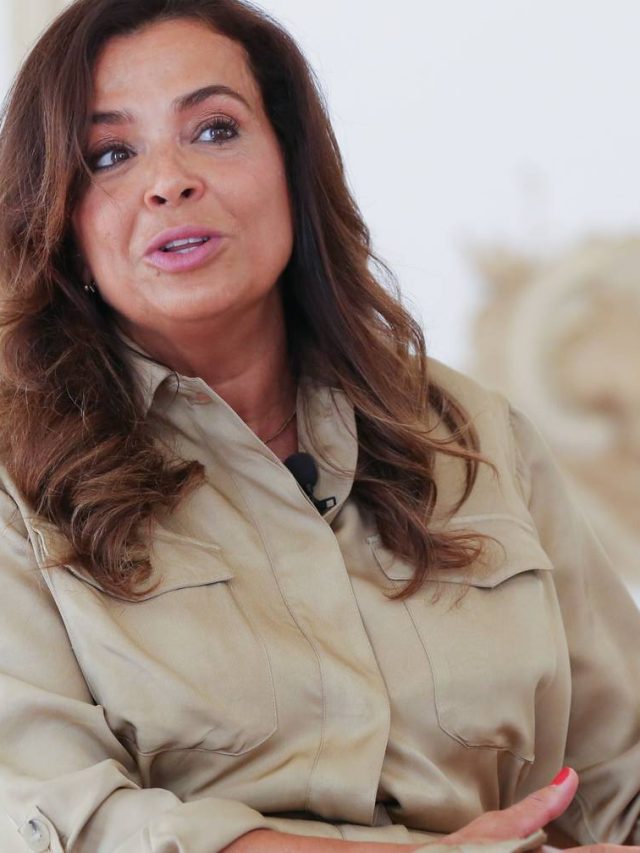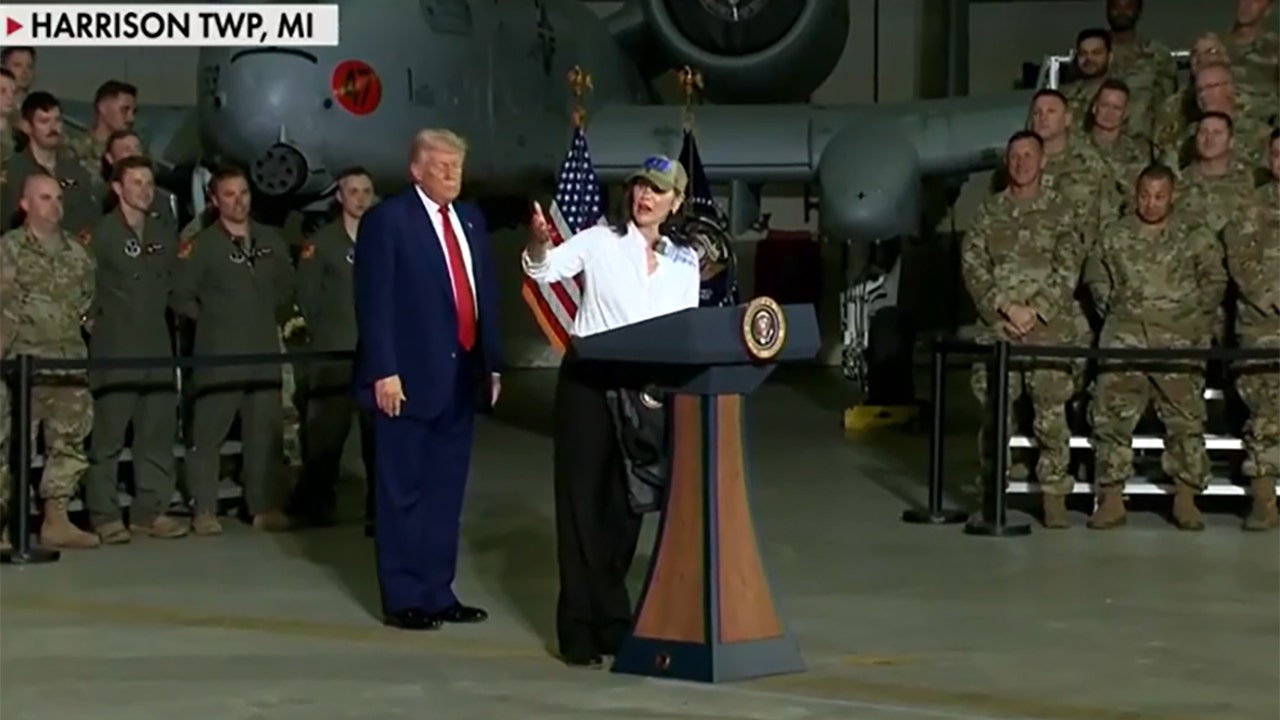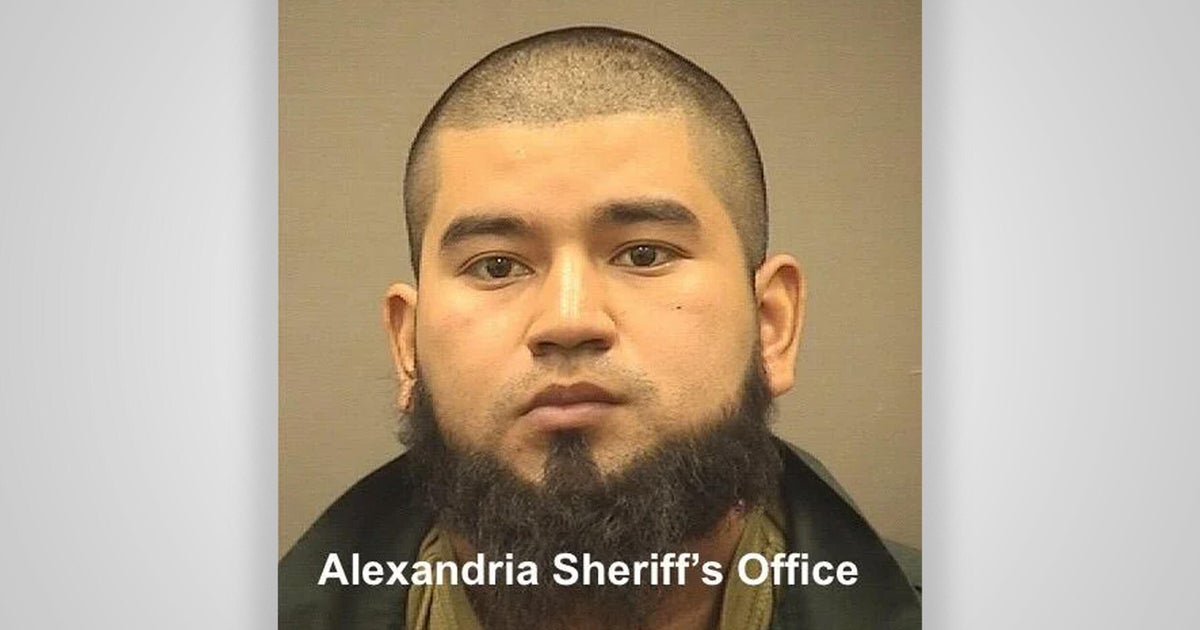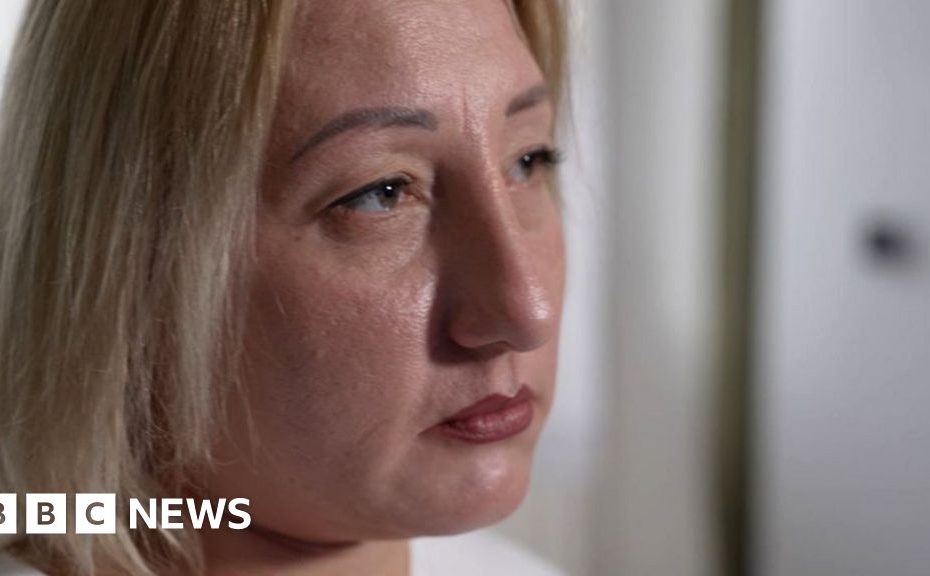How Russia is trying to turn desperate Ukrainians into traitors
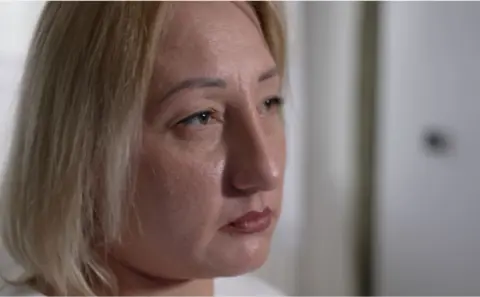 British Broadcasting Corporation
British Broadcasting CorporationSvetlana said she never considered betraying her country, “not even for a second.”
“My husband will never forgive me,” she says when we meet at her apartment near Kiev.
The 42-year-old had been waiting for news about her husband, Dima, a military doctor who was captured by Russia for more than two years, when she suddenly received a call.
The voice on the other end told her that if she committed treason against Ukraine, Dima might be eligible for better treatment in prison or even early release.
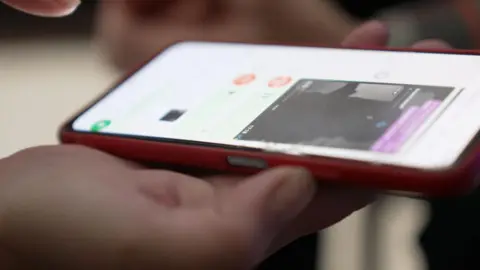
“A Ukrainian number called me. I answered the call and the person introduced himself as Dmitry,” Svetlana explained. “He spoke with a Russian accent.”
“He said, 'You can burn down recruiting offices, set fire to military vehicles, or destroy Ukrainian railway distribution boxes.'”
There's another option: Revealing the location of nearby air defense units — a critical military asset protecting Ukrainian skies from Russian drones and missiles.
When Dmitry offered his advice, Svetlana said she recalled instructions given by Ukrainian authorities to all families in case Russian agents were close: Buy as much time as possible, record and photograph everything, and then report it.
Svetlana did report the incident and took screenshots of the message, which she showed to the BBC.
The Security Service of Ukraine (SBU) told her to stop the Russians while they investigated. So she pretended to agree to a firebombing of a local railway line.
“Your husband is being tortured and it's your fault!”
As we sat in her spotless living room, with air raid sirens blaring every now and then, she played me recordings of two voice calls she had made with Dmitri on her phone through the Telegram app. During the call, he gave instructions on how to make and grow Molotov cocktails.
“Pour in a liter of lighting fluid and add a little gasoline,” explains Dmitry. “Go to some rail terminal. Make sure there are no security cameras. Wear a hat – just in case.”
He also provided Svetlana with a tutorial on how to put her phone into airplane mode when 1-2 kilometers away from the intended target to avoid her signal being picked up by cell towers that investigators could use.
“Do you know what a relay box is? Take a picture of it. This was supposed to be the target of her arson attack,” explained Dmitri, asking for proof of mission completion.
“Write today's date on a piece of paper and take a picture with the paper.”
In return, Dmitri said he could arrange a phone call with her husband or have the package delivered to him.
Later, the SBU told Svetlana that the man she was speaking to was indeed in Russia and that she should cut off contact. Svetlana told Dmitri that she had changed her mind.
“That’s when the threats started,” Svetlana said, “He said they would kill my husband and I would never see him again.
For several days, he kept calling and saying: “Your husband is being tortured and it's all your fault!”
“How worried are you that he might threaten to harm Dima?” I asked Svetlana. Her eyes were moist. “My heart ached and I could only pray: 'God, please don't let this happen.'”
“Part of me said 'This man has nothing to do with prisoners.' Another part asked: 'How would I deal with myself if he could actually do this?' '”
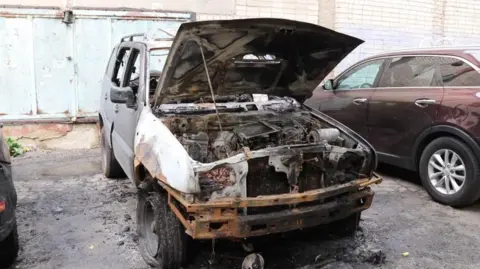 ukraine police department
ukraine police departmentIn a statement to the BBC, the SBU said working with Russian agents “in no way eases the plight of prisoners; on the contrary, it may significantly increase the chances of them being exchanged.”
Authorities are urging all relatives to come forward immediately if they are approached by Russian agents.
Those who do so will be “protected” and treated as victims, they said.
But if a relative agrees to carry out sabotage or espionage, the SBU said, “this may be classified as treason. The maximum penalty is life imprisonment.”
Authorities regularly publish arrests of Ukrainians suspected of setting fires or leaking the locations of military sites to Russia.
Pro-Kremlin media is awash with videos purportedly showing Ukrainians burning military vehicles or railway distribution boxes.
Some of the culprits are motivated by money, paid by suspected Russian agents, but there are also attacks believed to be carried out by desperate relatives.
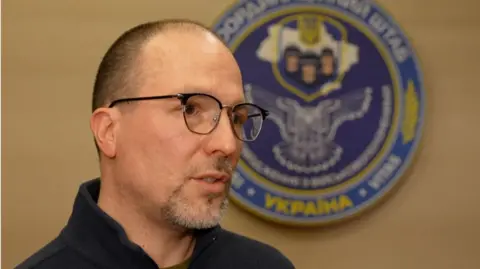
Petro Yatsenko of the Ukrainian military's headquarters for the treatment of prisoners of war said that about 50% of family members of prisoners of war will contact Russian agents.
“They are in a very vulnerable position and some of them are ready to do anything,” Petro said, “but we are trying to educate them that this is not going to help (their imprisoned loved ones).”
Petro said that actions such as setting military vehicles on fire were not considered to cause significant material damage to the Ukrainian Armed Forces:
“But it could undermine the unity of Ukrainian society, so that’s the main problem.
Of course, if someone shares the location of air defense systems and so on, that's a big problem for us as well,” he acknowledged.
Authorities have not released the number of Ukrainians held as prisoners of war, but the number is believed to be more than 8,000.
A Ukrainian intelligence source told the BBC that cases of relatives agreeing to cooperate with Russia were rare.
The Russian government told the BBC in a statement that accusations that it was using prisoners' families as bargaining chips were “baseless” and that Russia “treated Ukrainian combatants humanely and in full compliance with the Geneva Conventions.”
The statement went on to accuse Ukraine of using the same method:
“Ukrainian operators are actively trying to force Russian residents to commit acts of sabotage and arson on Russian soil, targeting critical infrastructure and civilian installations.”
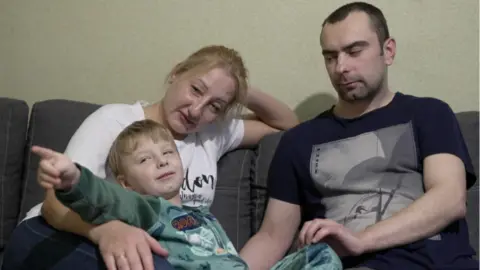
Svetlana's husband Dima was released from prison just over three months ago.
The couple are now happily back together and playing with their four-year-old son Vova.
How does Svetlana feel when her husband is finally released?
“I cried tears of joy like I'd never cried before,” she said with a smile. “It felt like I had snatched my love away from death.”
Dima told his wife that the Russians were not threatening action to punish him for her refusal to cooperate.
He was shocked when Svetlana told him about the phone call.
“He asked me how I kept going,” she said, winking. “Well, as I always say, I'm an officer's wife.”
